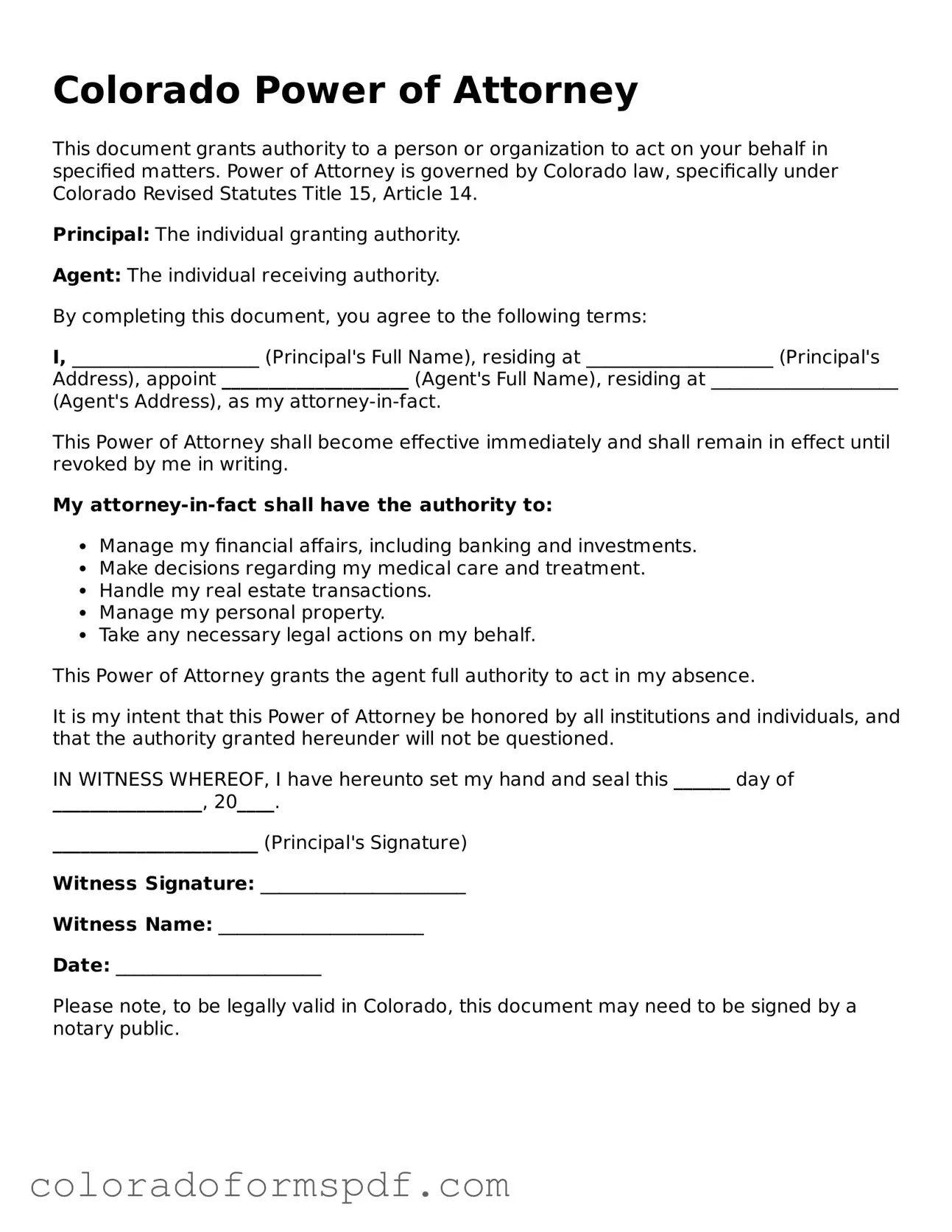Official Power of Attorney Template for Colorado State
A Colorado Power of Attorney is a legal document that allows one person to grant another individual the authority to make decisions on their behalf. This form can cover a wide range of matters, from financial transactions to healthcare decisions. Understanding how to properly create and utilize this document is essential for ensuring your wishes are respected when you cannot speak for yourself.
Get Document Online

Official Power of Attorney Template for Colorado State
Get Document Online

Get Document Online
or
Download PDF
Quick form completion starts here
Edit and finish your Power of Attorney online, then download.